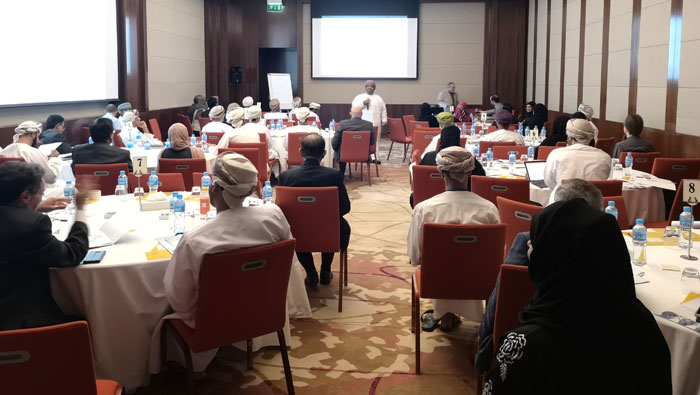
Muscat: Oman is aiming to make manufacturing a future engine of growth, according to a senior official at the Ministry of Commerce and Industry.
"Manufacturing has come a long way from what it was 40 years ago. From a few companies producing some staple food, clothing, jewellery and some repair shops, today, we have large modern refineries, cement plants, steel and aluminium mills,” Sami bin Salem Al Sahib, Director General of the Directorate General of Industry in the Ministry of Commerce and Industry, said.
"However, the role of manufacturing in leading us away from volatile oil and steel prices and into a modern, advanced and affluent society cannot end here. Oman needs to continue diversifying into more advanced stages of industrialisation."
"It is these new industries that will allow us to achieve true diversification and will look after our grandchildren. And we will have to develop smart rules and incentives that allow us to make manufacturing Oman’s ‘engine of growth’," he added.
Al Sahib made the comments during a workshop organised to discuss the preliminary results of the Sultanate's 2040 Industrial Strategy. The workshop titled "Building Oman's 2040 Industrial Strategy" was held at Crowne Plaza Muscat-OCEC and was attended by executives from the public and private sectors.
Al Sahib added, "One just has to walk around Rusayl, Sohar’s industrial estate and free zone, Nizwa industrial estate and Salalah’s industrial estate and free zone to find physical evidence of what has been achieved. And one day we will find something similar, or even more in Duqm. Let us not forget that manufacturing accounted for less than one per cent of gross domestic product (GDP) in 1980 and at its peak accounted for 11.4 per cent of GDP.”
On Oman's objectives with the 2040 strategy, Al Sahib stated, "We need to create an industry that provides interesting and well paid jobs to our children and builds on their creative capacities; an industry that puts at the centre its welfare and happiness and is at peace with the environment."
As part of the workshop, experts discussed natural resources, knowledge-based, and capital intensive industries. Additionally, stakeholders discussed the human capital, technology, and governance aspects of the strategy.
Speaking about the event, Michele Clara, Senior Coordinator of Research and Policy Advice at the United Nations Industrial Development Organisation (UNIDO), said, "First of all, what we want to do today is make sure that the strategy we put together is what the country needs."
"So what we will be doing today is validating the preliminary findings. We want to have clarity on where to go next and that people can buy it. I think the strategy is very ambitious; it’s realistic but doable. What will be required to get it done is actually concerted action between the public sector, the private sector, the universities and labour—all sorts of people in Oman have to agree where they want to be in 2040 and then they need to start talking about how to get there."
"Today, it’s an important first step, we want to establish a consensus on what we want to achieve by 2040; we want to move to practical action that we would like to discuss with the government starting early next year so that we can get down to business as soon as possible, as effectively as possible and in as concerted a manner as we can," he added.
The 2040 strategy focuses on three main fields, including enhancing competitiveness, the growth of the industrial sector, and enhancing technology in manufacturing.